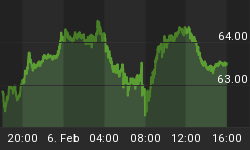Our Treasury Secretary Timothy Geithner told us this weekend that global stimulus needs to be in place until a recovery is "assured." This government -- which has consistently displayed the foresight and navigation skills of a deaf bat -- is now telling us that the wealth redistribution and inflationary policies of the Fed and Administration will be in effect until they have complete confidence this crisis has ended.
But exactly who in government will be the arbiter of identifying when a complete recovery has been achieved? Will it be the Federal Reserve, who assured us the sub-prime mortgage crisis was contained? Or will it be the Administration, who assured us the unemployment rate would not rise above 8% in 2009 if the stimulus program was adopted?
More fodder for the never ending Keynesian stimulus plans from Washington was found in last week's Consumer Credit report produced by the Federal Reserve. Credit to the consumer fell in September for a record eighth straight month to $2.46 trillion. The decline was $14.8 billion, or 7.2% at an annual rate. This type of data is used by the Administration to put into place policies that will help the consumer continue their debt and consumption binge. What they to fail to realize is that our addiction to debt and artificially-produced low interest rates was the progenitor of our problem in the first place.
In reality, consumer credit is higher today than it was in Q1 of 2007. To put that level into perspective, it is twice the level it was back in 1996. However, consumer credit that has doubled in just 13 years time is viewed by the administration as something that needs to be increased by further government intervention.
The government's desire to perpetuate our addiction to debt and inflation has now moved into full throttle. The Federal budget rose 18% in 2009 to $3.52 trillion and is projected to rise more than 50% to $5.3 trillion in 2019 -- according to the Treasury Department. And despite the rosy GDP and employment forecasts from Washington, the OMB expects annual deficits to add $9 trillion to the national debt thru 2019. The Administration's projections were made, by the way, without considerations for health care reform.
What government needs to realize is that outside of putting in policies that bolster the private sector, they cannot stimulate anything. They only things a government can do are; redistribute wealth in an inefficient manner, borrow from future production by going further into debt or create inflation.
And some of the lessons they have yet to learn are; interest rates should be a function of savings vs. the demand for credit -- not by government fiat, deflation is not a worse condition than inflation and encouraging consumption that is greater than a country's production is not always a good thing.
Mr. Geithner believes the way in which he can achieve his assuredness is by destroying the dollar and leveraging up the government's balance sheet. Our currency is trading down towards the pre-crisis level of just above 70.0 on the DXY and new debt levels are being breached on a daily basis. But the exploding annual deficits and destruction of the purchasing power of our dollar (inflation) is viewed as the panacea for the ailing economy.
However, while the American public is waiting for government's own version of surety to arrive, our national debt has just eclipsed over $12 trillion and the dollar has lost 16% of its value since March of this year alone. And unfortunately, that leaves me of with one thing I can be assured of today. This brief period of economic recovery and stock market euphoria (which is in nominal terms only) will soon turn into a U.S. debt and dollar disaster if we continue down this path.
Be sure to listen in on my Mid-Week Reality Check and to follow my blog Pentonomics
Follow me on Twitter: http://twitter.com/michaelpento















